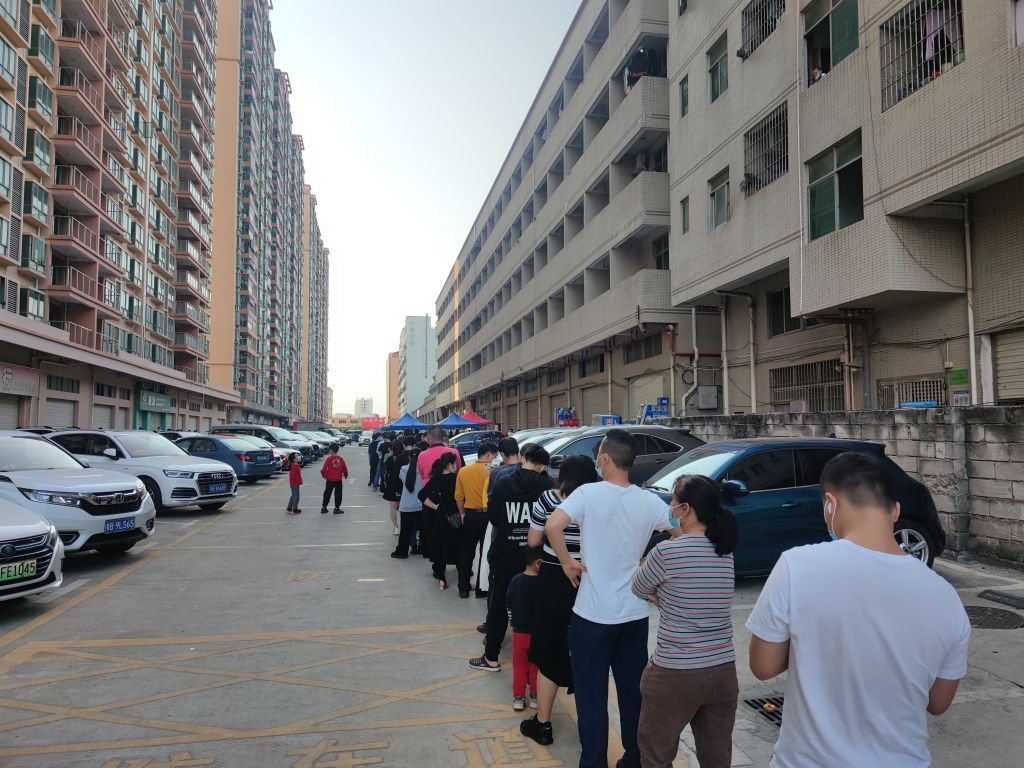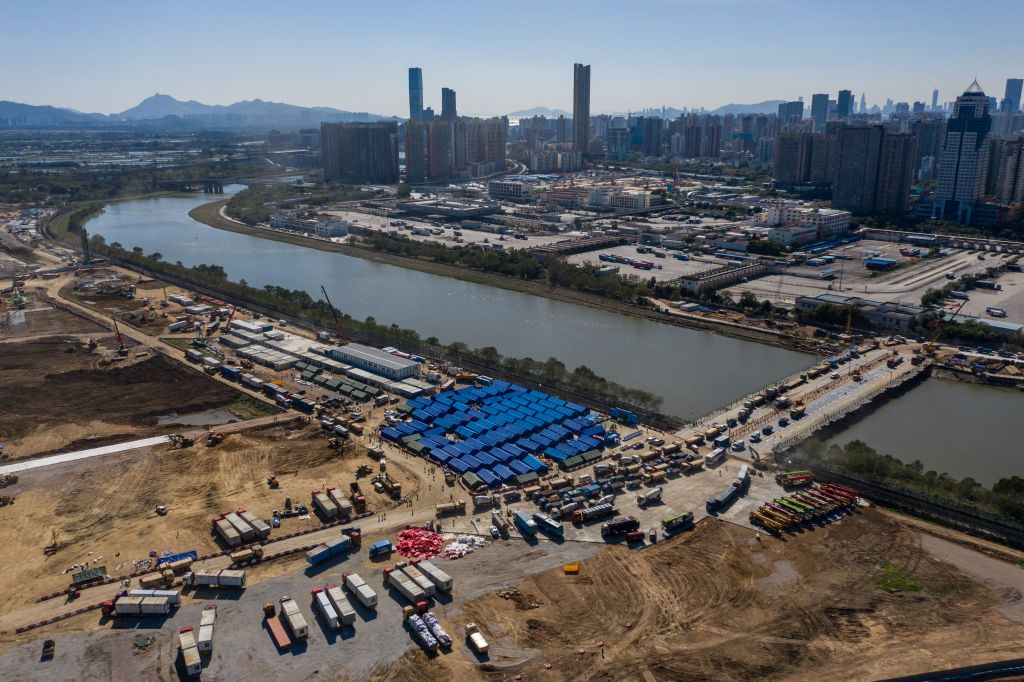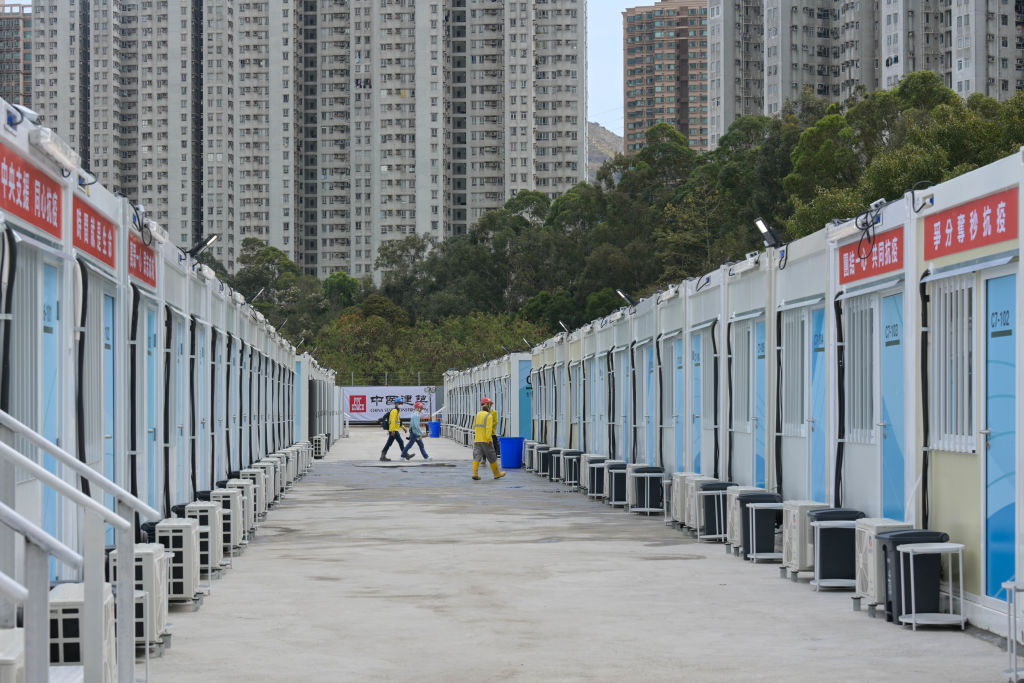
China placed the 17.5 million residents of the southern city of Shenzhen into lockdown for at least a week, seeking to halt a growing Covid-19 outbreak with a move that could cause disruption and production delays in the key technology hub and port.
The lockdown, which came after virus cases doubled nationwide to nearly 3,400, will be accompanied by three rounds of city-wide, mass testing, according to a government notice. The measure, announced Sunday, followed earlier restrictions placed on Shenzhen’s central business district, and will last until March 20.
All bus and subway systems were shut, and businesses, except those providing essential services, have been closed. Employees were told to work from home if they can. Residents will be barred from leaving Shenzhen—home to the headquarters of giants Huawei Technologies Co. and Tencent Holdings Ltd., as well as one of China’s busiest ports—except in limited situations.
The city is home to the China headquarters and a key manufacturing facility of Hon Hai Precision Industry Co., Apple Inc.’s main maker of the iPhone and other products.
Read More: How Hong Kong Became China’s Biggest COVID-19 Problem
The surge in infections in the city is thought to be linked to an unbridled outbreak in neighboring Hong Kong, where about 300,000 people are currently in isolation or under home quarantine. A Covid flareup in Shanghai has also seen most schools returned to online learning and travel into the city restricted. Bus services from other provinces were halted, and China’s aviation regulator is in discussions with airlines about diverting all international flights into the financial center, Bloomberg News reported Friday.
Growing clusters spawned by the highly infectious omicron variant in China’s most developed large cities and economic powerhouses have turned into an unprecedented challenge for the country’s Covid Zero strategy.
The policy, which gave China long periods virus free and one of the lowest death rates among major economies, is leaving the country increasingly isolated as other parts of the world open up and live with the virus. Until now, officials had largely resisted more hardcore measures such as lockdowns in China’s biggest cities and relied more on targeted responses, only to see omicron continue to spread.

COVID-19 economic disruption in China
Covid Zero tactics have led to disruption in other cities, with multiple rounds of mass testing in Tianjin in January halting production at a Toyota Motor Corp. plant and other factories there for more than a week. The approach will make it harder for Beijing to hit its economic growth target in 2022, as the costs of the measures rise, Nomura Holdings Inc. says. Still, China reiterated its commitment to Covid Zero on Friday, with top health official Ma Xiaowei saying strict controls needed to be kept in place and that officials should avoid “war-weariness” in their work.
Changchun, a city of some 9 million people in China’s northeast, was locked down on Friday, with residents there also to be mass tested. Reminiscent of the early days of the pandemic in Wuhan, authorities are moving quickly to build makeshift hospitals there and in the eastern port city of Qingdao. China isolates all positive virus cases, regardless of severity, to prevent spread.
The Covid surge in Hong Kong has provided an unprecedented challenge to Beijing, with the city’s tight border controls and weeks-long quarantines no match for omicron once it entered the city. Thousands of people left the Asian financial hub to return to the mainland, with Shenzhen and Shanghai some of the busiest entry ports.
Shanghai Disneyland will operate at controlled capacity and will require visitors to present negative Covid test results from within 24 hours of entering the amusement park.
Read More: Don’t Expect China to Ease It’s Zero-COVID Policy Soon
Hong Kong’s health system and morgues have been under pressure from the record outbreak that’s pushed its death rate to one of the highest in the world. While the virus case count in the city appears to have plateaued over the past week, fatalities have risen, especially among the elderly, which had some of the lowest vaccination rates despite their greater vulnerability.
The Hong Kong government is still formulating plans for the mandatory testing of all its residents, including timing and how they’ll ensure essential operations can continue if movement restrictions were to be imposed, Chief Executive Carrie Lam said Wednesday. For now, authorities will focus on vaccinating older people living at care facilities—which are seeing a surge in fatalities—and increase the number of hospital beds to treat patients, she has said.

Also an adherent of Covid Zero, Hong Kong has laid the limits of the strategy bare with authorities scrambling once omicron got through the tough border defenses. There seems to have been little planning for if the virus flared meaningfully in the city, resulting in scenes eerily similar to those seen in the early days of the pandemic in parts of Italy and the U.S. Hong Kong’s density and political climate makes it difficult to lock down, and despite pressure from Beijing officials have so far resisted calling one.
While China is publicly still committed to eliminating Covid, there are signs the country’s health officials and experts are at least considering how they may exit the approach and live with the virus as endemic.
Read More: How Omicron Could Break Asia’s COVID-19 Strategy
China approved the antiviral pill Paxlovid developed by Pfizer Inc. last month, a move seen by many as evidence of that planning. The introduction of rapid antigen tests on Friday may also be a sign, with other countries shifting toward use of at-home tests when their lab testing systems were overwhelmed by broader circulation of the virus.
That said, any shift will be slow and unlikely to occur before 2023, given the need for stability in a politically important year for President Xi Jinping, people familiar with China’s thinking have told Bloomberg.
—With assistance from Jacob Gu
More Must-Reads from TIME
- Cybersecurity Experts Are Sounding the Alarm on DOGE
- Meet the 2025 Women of the Year
- The Harsh Truth About Disability Inclusion
- Why Do More Young Adults Have Cancer?
- Colman Domingo Leads With Radical Love
- How to Get Better at Doing Things Alone
- Michelle Zauner Stares Down the Darkness
Contact us at letters@time.com